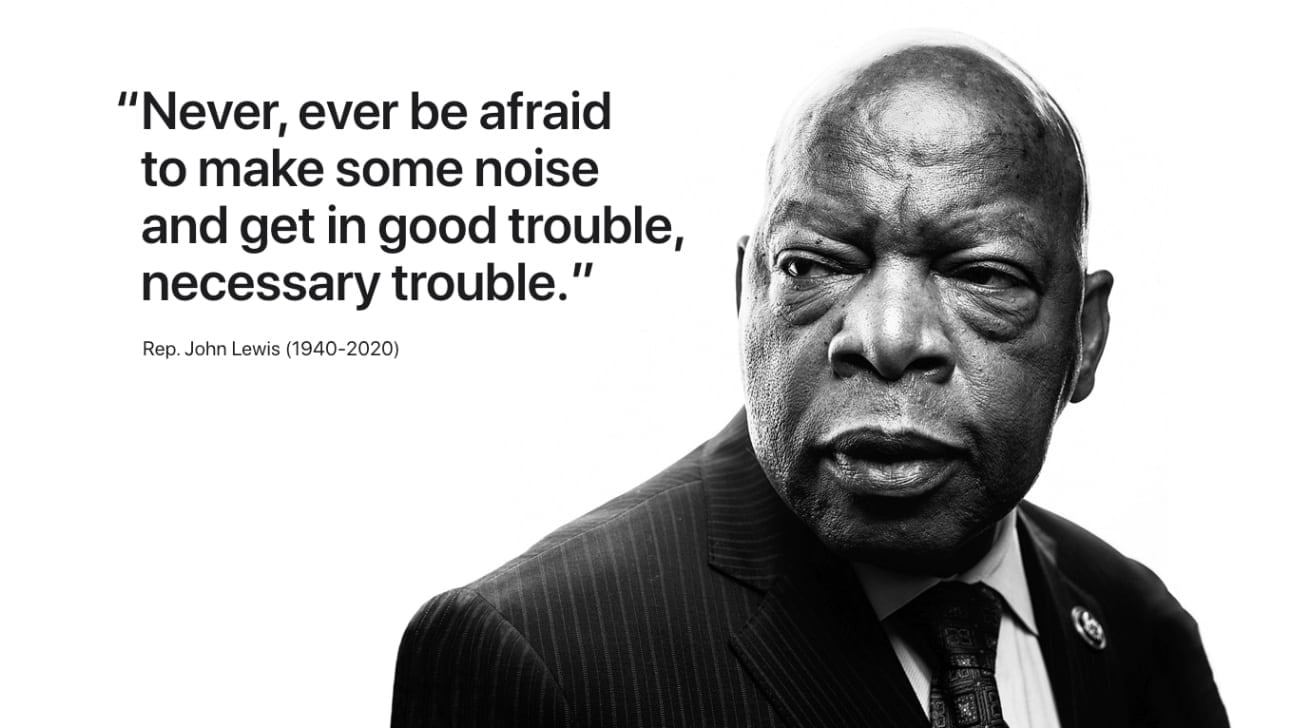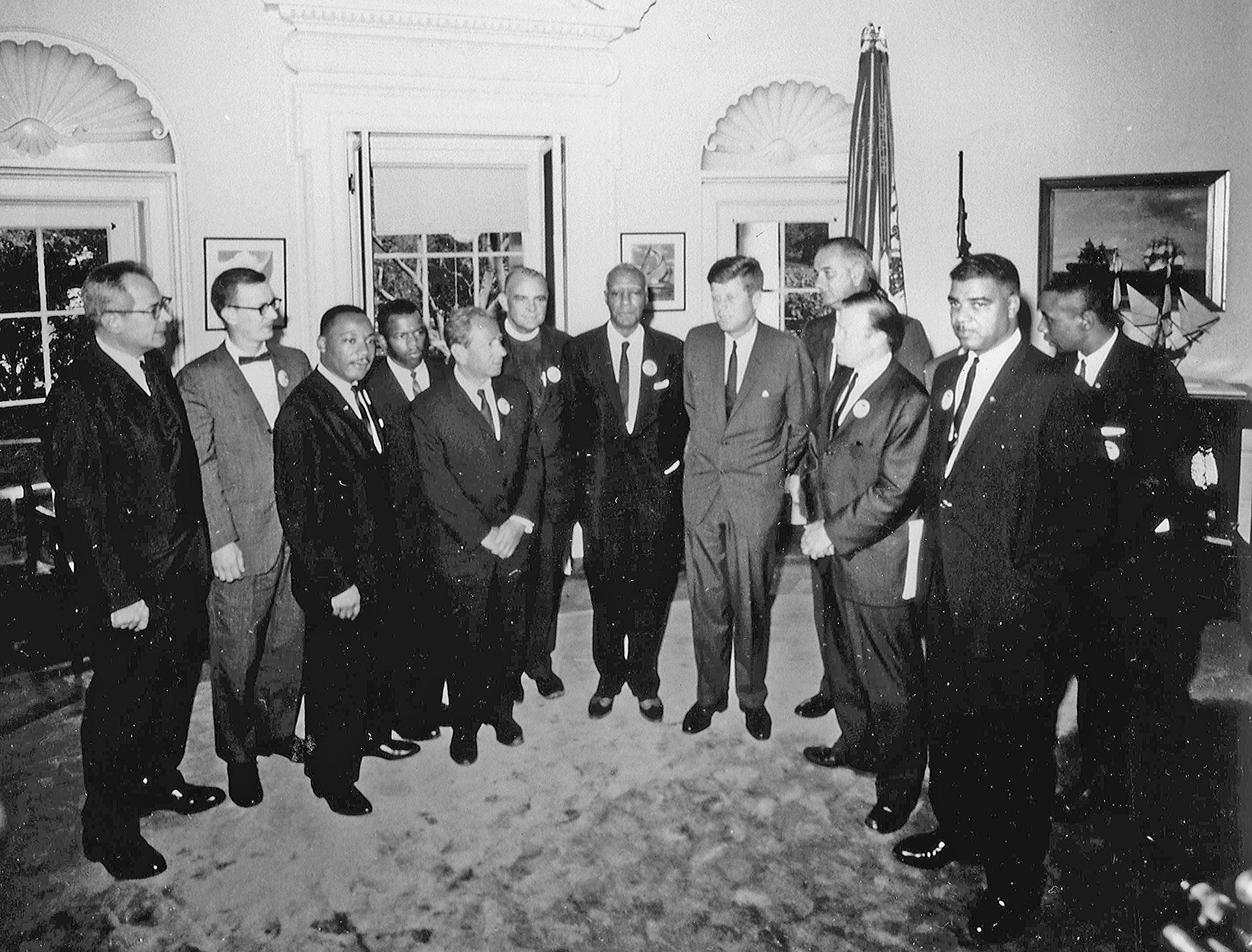
American civil rights leader and U.S. Representative John Lewis (D-GA) passed away on July 17, 2020, following a seven-month battle with pancreatic cancer. The 80-year-old dedicated his life to building what he called "The Beloved Community" in America — first as a civil rights leader and then as a lawmaker advocating, for reforms on issues from gun control to health care.
"The world is a better place because John Lewis spent his life pursuing freedom, justice, opportunity, love, and peace for all of humanity," Democratic Rep. Sanford Bishop said during a House bipartisan remembrance for Mr. Lewis. "He inspired us as the conscience of Congress."
Republican Rep. Tom Graves added to the tribute, saying, "Our nation has indeed lost a giant. It's times like these that we must be reminded of the shoulders that we stand on, the shoulders of giants like John, I'm better off because of John Lewis. … Our nation is so much better because of John Lewis."

Born in 1940 in rural Alabama, Mr. Lewis was the son of sharecroppers — tenant farmers who gave a part of each crop as rent — during a time when African Americans were considered second-class citizens. Growing up, Mr. Lewis aspired to be a preacher. However, inspiration from Dr. Martin Luther King, Jr. (MLK, Jr.) and anger at the Jim Crow laws, which mandated segregation between whites and black Americans in schools and public places in the southern states, caused him to become a civil rights activist instead.
Mr. Lewis's first encounter with law enforcement came in February 1960, when he and several other black students got into a fight with white patrons while protesting racist policies by sitting at a department store "whites-only" lunch counter in Nashville.
"I didn't necessarily want to go to jail," he recalled in a 1973 interview for the Southern Oral History Program. "But we knew…it would help solidify the student community and the Black community as a whole. The student community did rally. The people heard that we had been arrested, and before the end of the day, five hundred students made it into the downtown area to occupy other stores and restaurants. At the end of the day, ninety-eight of us were in jail."
The peaceful sit-ins worked as hoped. By April that year, lunch counters in Nashville were open to all, but Mr. Lewis's efforts were just beginning.

The young activist rapidly emerged as one of the Big Six leaders of the civil rights movement — a group that included MLK Jr., James Farmer, A. Philip Randolph, Roy Wilkins, and Whitney Young. He rose to national prominence on March 7, 1965. On that fateful day, Mr. Lewis led more than 600 civil rights advocates on a 54-mile march from Salem, Alabama, to the state capitol in Montgomery to urge lawmakers to allow African American citizens to exercise their constitutional right to vote. The peaceful demonstrators, however, were stopped by a row of state troopers at the end of the Edmund Pettus Bridge and ordered to return home. When they refused to budge, the officials used tear gas and batons, mercilessly injuring fifty activists including Mr. Lewis. However, their sacrifice did not go in vain. "Bloody Sunday", which was televised live, brought the nation's attention to the unjust law and instigated the Voting Rights Act of 1965, a landmark federal achievement of the civil rights movement.
Mr. Lewis's determination to bring reform to the country continued after he was elected the U.S. Representative of Georgia's Fifth Congressional District in 1986. The lawmaker, who was re-elected 16 times, spent his 33 years in Congress fighting for initiatives like better education and healthcare for the underprivileged, and gun control reform. He also co-wrote a series of graphic novels about the civil rights movement, for which he won the National Book Award in 2016. Former President Barack Obama recognized Mr. Lewis's relentless pursuit of justice by bestowing him with the Presidential Medal of Freedom, the nation's highest civilian honor, in 2011.
The civil rights icon will be laid to rest on July 30, 2020, at Atlanta's historic Ebenezer Baptist Church, following a six-day "celebration of life." The themed memorials will include stops in Troy, Selma — where Mr. Lewis will cross the Edmund Pettus Bridge one last time — and Montgomery, Ala., as well as Washington, DC. His casket will be available for public viewing at each location, allowing fans to pay their respects to the civil rights hero one last time.

To honor his legacy, many Americans and politicians are urging lawmakers to restore Section 4(b) of the Voting Rights Act of 1965, which was struck down by the Supreme Court in 2013. It required states and localities with a history of discrimination against minority voters to get a "pre-clearance" from the federal government before making any changes to their voting policies.
Reverend C.T. Vivian, another civil rights leader and one of Mr. Lewis’s collaborators, also died on July 17, 2020, at the age of 95. Known by many as “The Quiet Warrior,” he was a close friend and confidant of MLK Jr. and spent his life campaigning for equality and justice. The clergyman, who was considered one of the greatest preachers of his generation, was laid to rest at Providence Missionary Baptist Church in Atlanta, GA, on July 23, 2020.
Though the activists may be gone, their fight for justice and equality for all must continue. As Mr. Lewis once said, "Do not get lost in a sea of despair. Be hopeful, be optimistic. Our struggle is not the struggle of a day, a week, a month, or a year, it is the struggle of a lifetime. Never, ever be afraid to make some noise and get in good trouble, necessary trouble,"